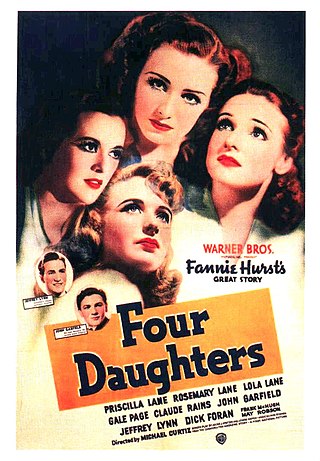
Four Daughters is a 1938 American romance film that tells the story of a happy musical family whose lives and loves are disrupted by the arrival of a charming young composer who interjects himself into the daughters' romantic lives. His cynical, bitter musician friend comes to help orchestrate his latest composition and complicates matters even more. The movie stars the Lane Sisters and Gale Page, and features Claude Rains, Jeffrey Lynn, John Garfield, and Dick Foran. The three Lanes were sisters and members of a family singing trio.
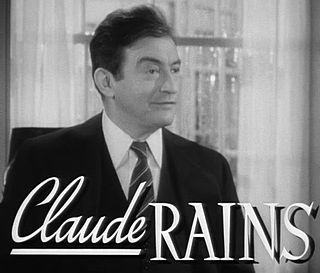
William Claude Rains was a British actor whose career spanned almost seven decades. After his American film debut as Dr. Jack Griffin in The Invisible Man (1933), he appeared in The Adventures of Robin Hood (1938), Mr. Smith Goes to Washington (1939), The Wolf Man (1941), Casablanca (1942), Kings Row (1942), Notorious (1946), Lawrence of Arabia (1962), and The Greatest Story Ever Told (1965).
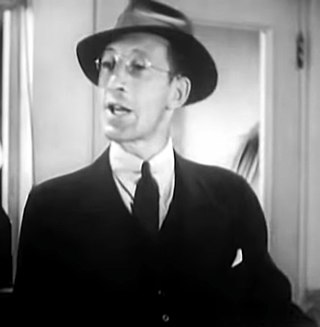
Charles Lane was an American character actor and centenarian whose career spanned 76 years.

Frank O'Connor was an American character actor and director, whose career spanned five decades and included appearances in over 600 films and television shows. Early in his career he was also billed as Frank A. Connor and Frank L.A. O'Connor. During the silent film era, he directed or was the assistant director on numerous films; he also penned several screenplays in both the silent and sound film eras. He is sometimes erroneously identified with the Frank O'Connor who was married to author Ayn Rand.

John Richard Moore Jr. was an American actor known professionally as Dickie Moore, he was one of the last surviving actors to have appeared in silent film. A busy and popular actor during his childhood and youth, he appeared in over 100 films until the early 1950s. Among his most notable appearances were the Our Gang series and films such as Oliver Twist, Blonde Venus, Sergeant York, Out of the Past, and Eight Iron Men.
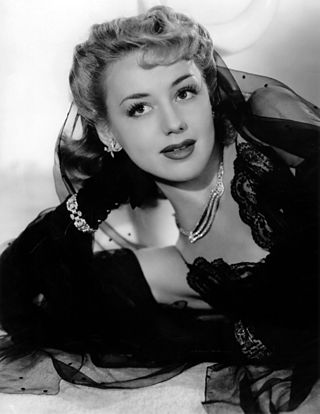
Anne Shirley was an American actress.

Jeffrey Lynn was an American stage-screen actor and film producer who worked primarily through the Golden Age of Hollywood establishing himself as one of the premier talents of his time. Throughout his acting career, both on stage and in film, he was typecast as "the attractive, reliable love interest of the heroine," or "the tall, stalwart hero."

Edward Erskholme Clive was a Welsh stage actor and director who had a prolific acting career in Britain and America. He also played numerous supporting roles in Hollywood movies between 1933 and his death.
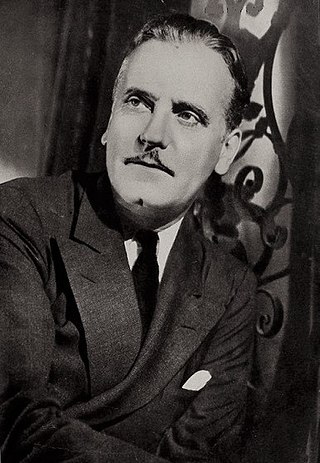
Raphael Kuhner Wuppermann, known professionally as Ralph Morgan, was a Hollywood stage and film character actor, and union activist. He was a brother of actor Frank Morgan as well as the father of actress Claudia Morgan.

Shirley Anne Field was an English actress who performed on stage, film and television since 1955, prominent during the British New Wave.

Harold George Bryant Davenport was an American film and stage actor who worked in show business from the age of six until his death. After a long and prolific Broadway career, he came to Hollywood in the 1930s, where he often played grandfathers, judges, doctors, and ministers. His roles include Dr. Meade in Gone with the Wind (1939) and Grandpa in Meet Me in St. Louis (1944). Bette Davis once called Davenport "without a doubt [. . .] the greatest character actor of all time."

Richard Lane was an American actor and television announcer/presenter. In movies, he played assured, fast-talking slickers: usually press agents, policemen and detectives, sometimes swindlers and frauds. He is perhaps best known to movie fans as "Inspector Farraday" in the Boston Blackie mystery-comedies. Lane also played Faraday in the first radio version of Boston Blackie, which ran on NBC from June 23, 1944 to September 15, 1944. Lane was an early arrival on television, first as a news reporter and then as a sports announcer, broadcasting wrestling and roller derby shows on KTLA-TV, mainly from the Grand Olympic Auditorium in Los Angeles.

Harold G. "Hal" Rosson, A.S.C. was an American cinematographer who worked during the early and classical Hollywood cinema, in a career spanning some 52 years, starting from the silent era in 1915. He is best known for his work on the fantasy film The Wizard of Oz (1939) and the musical Singin' in the Rain (1952), as well as his marriage to Jean Harlow.

The Prince and the Pauper is a 1937 film adaptation of the 1881 novel of the same name by Mark Twain. It starred Errol Flynn, twins Billy and Bobby Mauch in the title roles, and Claude Rains and has been described as "a kids' fantasy."
Seton Ingersoll Miller was an American screenwriter and producer. During his career, he worked with film directors such as Howard Hawks and Michael Curtiz. Miller received two Oscar nominations and won once for Best Screenplay for the 1941 fantasy romantic comedy film, Here Comes Mr. Jordan, along with Sidney Buchman.

Castle on the Hudson is a 1940 American film noir drama directed by Anatole Litvak and starring John Garfield, Ann Sheridan, and Pat O'Brien. A thief is sent to Sing Sing Prison, where he is befriended by the reform-minded warden. The film was based on the book Twenty Thousand Years in Sing Sing, written by Lewis E. Lawes, on whom the warden in the film was based. Castle on the Hudson was actually a remake of an earlier Spencer Tracy prison film, 20,000 Years in Sing Sing (1932), also based on Lawes's book.

Four Wives is a 1939 American drama film starring the Lane Sisters and Gale Page. The film was directed by Michael Curtiz and is based on the story "Sister Act" by Fannie Hurst. The supporting cast features Claude Rains, Jeffrey Lynn, Eddie Albert, Frank McHugh and Dick Foran. The picture is a sequel to Four Daughters (1938) and was followed by Four Mothers (1941). Four Wives was released by Warner Bros. on December 25, 1939.
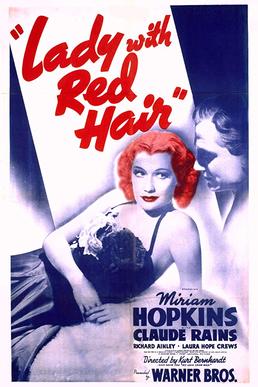
Lady with Red Hair is a 1940 American historical drama film directed by Curtis Bernhardt and starring Miriam Hopkins, Claude Rains and Richard Ainley. Released by Warner Brothers it stars Hopkins as the nineteenth century actress Mrs. Leslie Carter. Future star Alexis Smith made her screen debut in a small role.

Maybe It's Love is a 1935 American comedy film directed by William C. McGann and written by Jerry Wald and Harry Sauber. The film stars Gloria Stuart, Ross Alexander, Frank McHugh, Ruth Donnelly, Helen Lowell and Henry Travers. The film was released by Warner Bros. on January 12, 1935.

Saturday's Children is a 1929 American part-talkie romantic-comedy film directed by Gregory La Cava, and starring Corinne Griffith, Grant Withers, Albert Conti, Alma Tell, Lucien Littlefield. It is based on the 1927 play Saturday's Children by Maxwell Anderson. The film was released by Warner Bros. on March 10, 1929, in silent version and April 14, 1929, in sound version.



















